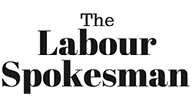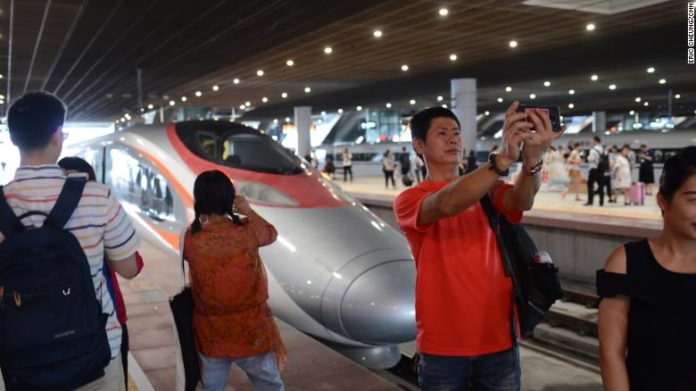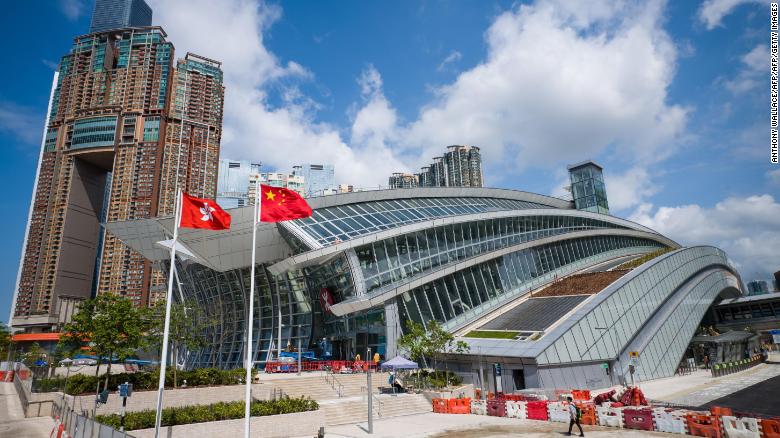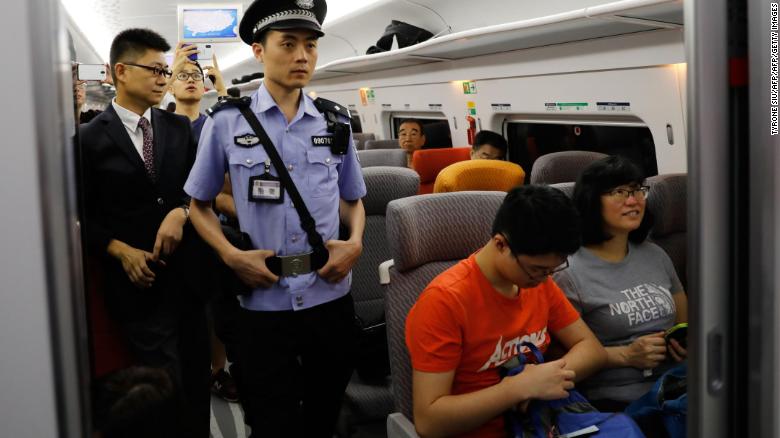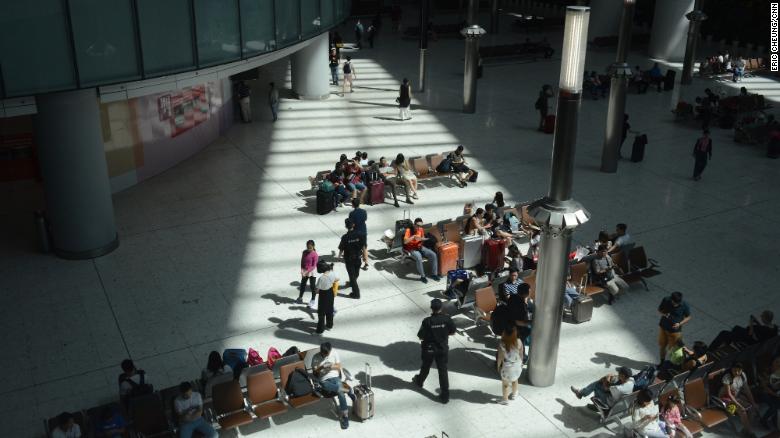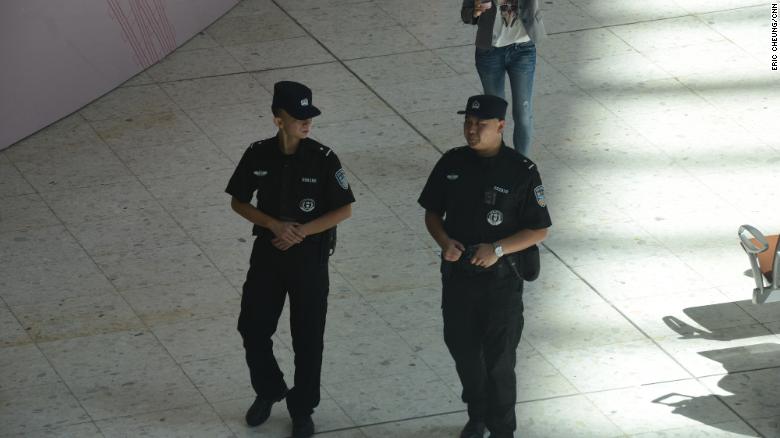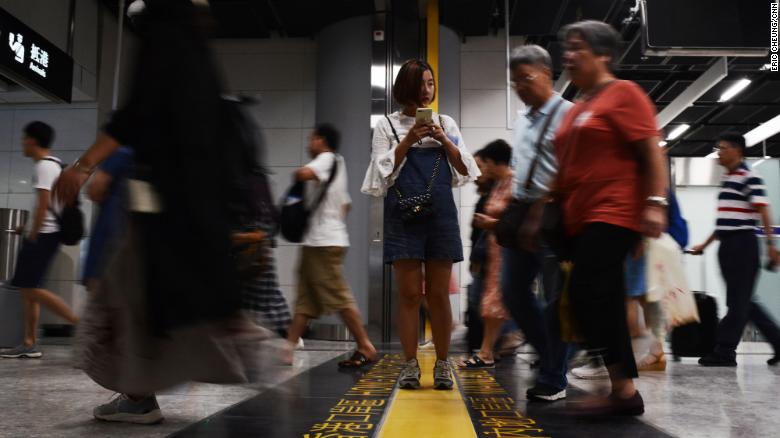Hong Kong (CNN)The first ever bullet train from Hong Kong to China departed Sunday, as the city’s controversial high-speed rail link opened to the public amid fears greater integration with the mainland could lead to ever more encroachment by Beijing in semi-autonomous Hong Kong’s affairs.
Thousands of journalists, tourists and train enthusiasts queued for hours to become the first passengers to travel from West Kowloon Station — located in central Hong Kong — to the Chinese city of Guangzhou aboard the new $10 billion rail link.
The 26 kilometer (16 mile) railway links Hong Kong up to China’s high-speed rail network, currently the world’s largest, allowing passengers to travel from the city to Shanghai and Beijing.
Under a joint checkpoint arrangement, the station is divided into Hong Kong and Chinese port areas, with the latter falling under the direct jurisdiction of Beijing. For this to work, the Hong Kong government leased part of the station — including the immigration checkpoint, waiting lounge, and platforms — to China for a token annual fee of around $128.
This means that although the West Kowloon station is located in central Hong Kong, part of it is governed by Chinese law and patrolled by mainland police. According to the agreement, the Chinese authorities will have the power to arrest individuals inside the station, or even transfer them to the mainland.
On the platform, technically part of China, passengers took photos and selfies as they waited for the Vibrant Express to whisk them northwards. At Shenzhen North station, the terminus for some of the short-haul trains for Hong Kong, there was a similar scene as tourists lined up outside the boarding gates bound for the city.
The joint checkpoint arrangement — the first time the authorities in Beijing have had direct control over Hong Kong since it was ceded to the British in 1841 — has been hugely controversial in the city. Many fear it could be the start of further erosion of Hong Kong’s semi-autonomous legal and political systems.
The case of several Hong Kong booksellers, two of whom were allegedly abducted by Chinese agents from Hong Kong and Thailand respectively, hangs large over the project. Critics fear that if Chinese police are able to operate in the city, this will give them a base from which to go after critics of the central government.
“The co-location arrangement cedes part of Hong Kong and applies mainland laws in those areas,” said opposition lawmaker Gary Fan at a small rally Saturday, where around a dozen protesters gathered outside the extravagant railway terminal to criticize the city’s leader, Carrie Lam, for selling out to China.
“To many Hong Kong people, this has damaged ‘One Country, Two Systems’ and the rule of law,” Fan added, referring to the principle by which Hong Kong maintained some of its freedoms when sovereignty over it was passed from London to Beijing.
John Tong, a Hong Kong librarian who was on one of the first trains to China from West Kowloon station, said it felt “really strange” to see Chinese police and Hong Kong officials operating side by side.
“Perhaps this is a sign of greater integration between Hong Kong and China,” he said. “But I am not too worried, because people who do not visit China will not take the high-speed rail anyway.”
